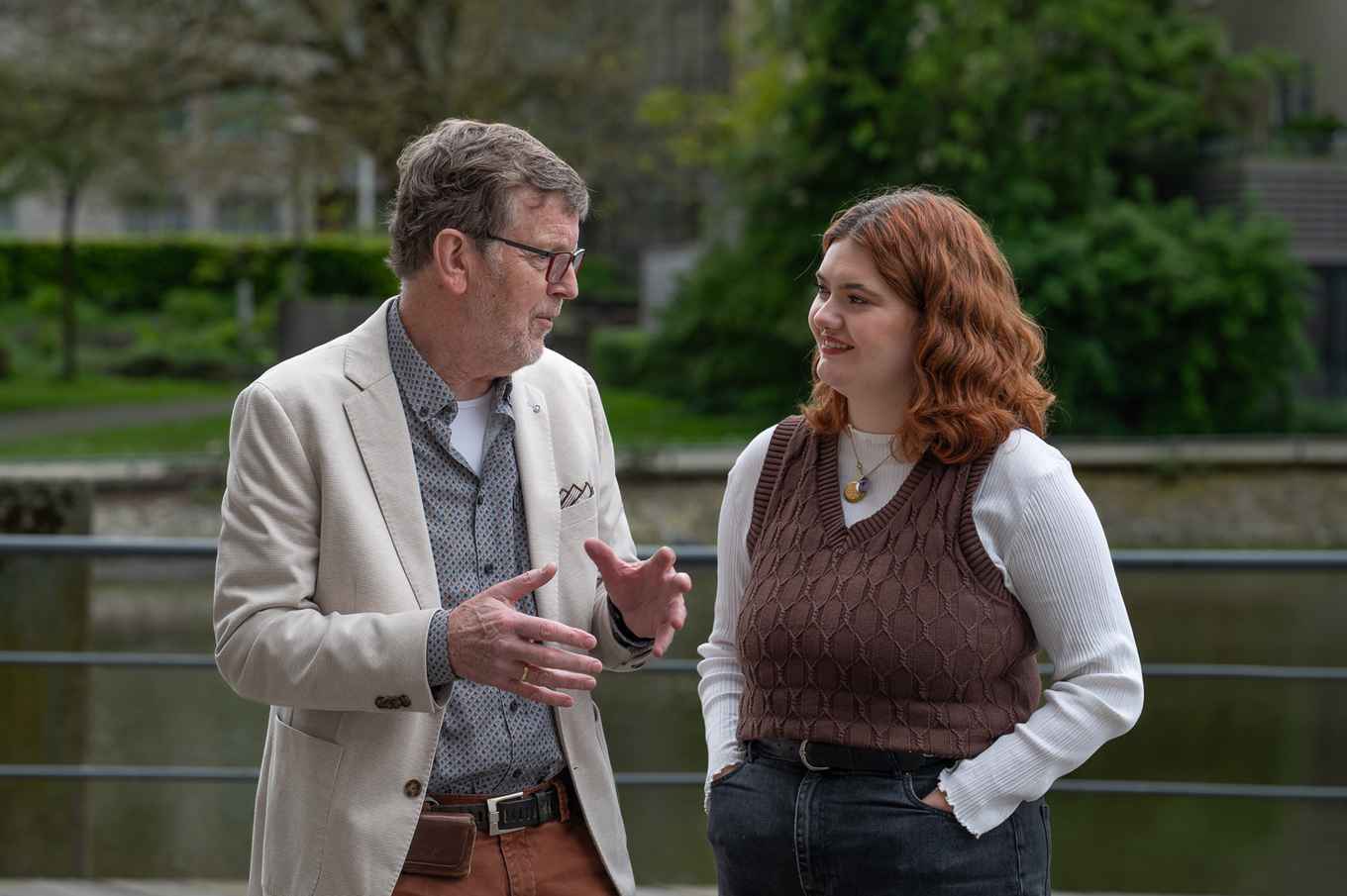Attention makes the difference between dropping out or continuing''
Being the first in your family to attend university
10 July 2024

That extra attention for first-generation students can make the difference between dropping out or continuing, Van der Kruijf knows from his own experience. The third-year bachelor's student of Interdisciplinary Social Sciences (ISW) ended up at university via MAVO/MBO4 and HBO. 'I came into a world I didn't know and didn't know what to expect. Nobody from of my entire family had ever attended university before.' She felt out of place. 'I had a completely different way of speaking and behaving and was convinced that I didn't belong here.' The study itself also overwhelmed her. 'Especially in the first semester of the first year. The workload was enormous and I found reading academic texts difficult. I put enormous pressure on myself and was afraid that I wouldn't succeed. I was close to quitting.”
"I had a completely different way of speaking and behaving and was convinced that I didn't belong here."UvA student Annette van der Kruijf
Feeling of inferiority
Verschoor nods in agreement. He himself started studying Psychology at the age of 48. 'I started studying as a hobby and could have completed it in four years. But I spent 14 years fighting the voice in my head: you will never succeed.'
Verschoor's story is not an average one. He grew up in poverty and had a traumatic childhood. Having a good education was not in the line of expectation. During Verschoor's teenage years, the family lived in South Africa for a number of years, where he followed secondary education that was valued at pre-university education level in The Netherlands. His father worked in aviation and said off the top of his head: ‘why don't you become a pilot?’ 'That was the world I knew. I applied to the National Aviation School, and to my surprise, was accepted and became a captain. When I applied to the UvA in 1997, I already had a career and a family. Despite this, I had a huge feeling of inferiority at university. I didn't feel at home, I put enormous pressure on myself and I was too ashamed to ask for help.'
Asking for help
And asking for help, according to Van der Kruijf, is precisely the beginning of the solution. Through ISW teacher Milio van de Kamp, she ended up at a meeting of Baanbrekers, a programme for and by first-generation students of ISW and Sociology. 'I'll never forget it. Students shared what they encountered. It's so nice to know you're not alone .' It is precisely this support that first-generation students often miss. Van der Kruijf remembers how her college mentor reacted when she obtained her propaedeutic diploma with honours and told her that she wanted to go to university. 'She said that eighty percent of the students who do that are back at college within a year. I found the lack of trust and support intense.'
Empowering students
Van der Kruijf now works as a student assistant at Baanbrekers. Before she starts her master's degree, she will now have a board year, during which she will focus on the chairmanship of the Pegasus student association and the faculty association. 'As a student I saw many things that I would like to do differently, now I have the time and opportunity to work on them.'
Verschoor has a lot of respect for that. 'I have always done a lot, but I kept feeling small. I remember the first time I wore a tuxedo: I felt very unhappy. If there had been something like Baanbrekers in my time, I would certainly have taken advantage of it.' Verschoor is now contributing in his own way to strengthening the first-generation student. Since his graduation, he has donated annually to the AUF in gratitude for his studies. Last year he made an additional donation for first-generation students. ‘I have personally experienced how incredibly important that is.’